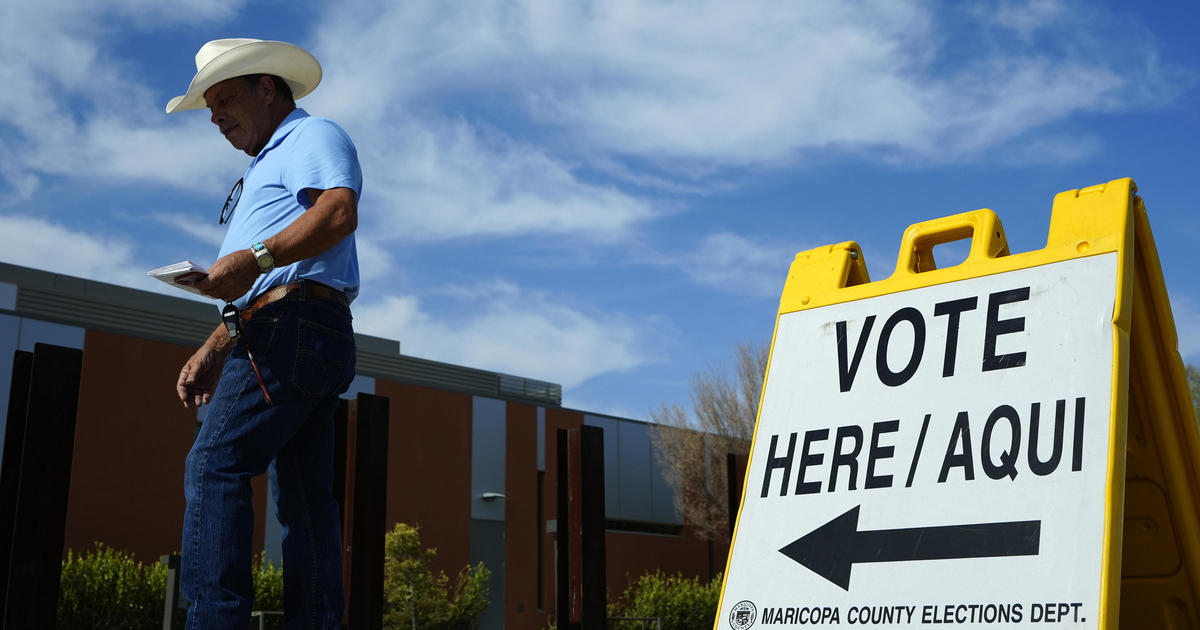The Arizona Supreme Court made a significant ruling on Friday that will impact nearly 98,000 individuals whose citizenship documents had not been confirmed. These individuals will now be allowed to vote in state and local races, after a database error was uncovered that mistakenly designated them as having access to the full ballot for the past two decades.
The decision by the court came after Secretary of State Adrian Fontes, a Democrat, and Stephen Richer, the Republican Maricopa County recorder, could not agree on the status that these voters should hold. Richer felt that Fontes had ignored state law by advising county officials to allow the affected voters to cast full ballots, and thus asked the high court to intervene.
Fontes argued that preventing these voters, who believed they had met all voting requirements, from accessing the full ballot would raise concerns about equal protection and due process. The high court ultimately sided with Fontes, stating that county officials did not have the authority to change the voters’ statuses, as they had registered long ago and had attested under penalty of law that they were citizens. The justices also noted that the voters were not at fault for the database error and highlighted the limited time remaining before the November 5 general election.
Chief Justice Ann Scott Timmer emphasized in the ruling that they were unwilling to disenfranchise voters en masse from participating in state contests. Arizona stands out among states for its requirement that voters prove their citizenship in order to vote in local and state races. This can be done by providing a driver’s license or tribal ID number, or by attaching a copy of a birth certificate, passport, or naturalization documents.
The state considers drivers’ licenses issued after October 1996 to be valid proof of citizenship. However, the coding error in the system mistakenly marked nearly 98,000 voters who obtained licenses before 1996 as full-ballot voters, which accounts for roughly 2.5% of all registered voters in the state. While this error would not have impacted the presidential race, it could have significant implications for closely contested races in the state Legislature, where Republicans currently hold a slim majority in both chambers.
Additionally, the error could also affect various ballot measures, such as those related to the constitutional right to abortion and criminalizing noncitizens for entering Arizona through locations other than official ports of entry. In response to the ruling, Richer expressed gratitude to the court for promptly reviewing the case and to Fontes for working together to address the error.
The decision by the Arizona Supreme Court has far-reaching implications for the upcoming election, as nearly 98,000 individuals will now have the opportunity to participate in state and local races. This ruling underscores the importance of ensuring that all eligible voters are able to exercise their right to vote, while also highlighting the need for accurate and reliable voter registration databases to prevent errors that could disenfranchise individuals.
It is crucial for state officials to work together to address any issues that arise in the electoral process and to uphold the integrity of the voting system. By acknowledging the error and taking steps to rectify it, Arizona has demonstrated its commitment to ensuring that every citizen has the opportunity to participate in the democratic process and have their voices heard.
As the November 5 general election approaches, it is essential for all eligible voters to be informed about their voting rights and to participate in the democratic process. The ruling by the Arizona Supreme Court serves as a reminder of the importance of safeguarding the right to vote and ensuring that all citizens are able to exercise this fundamental right.









